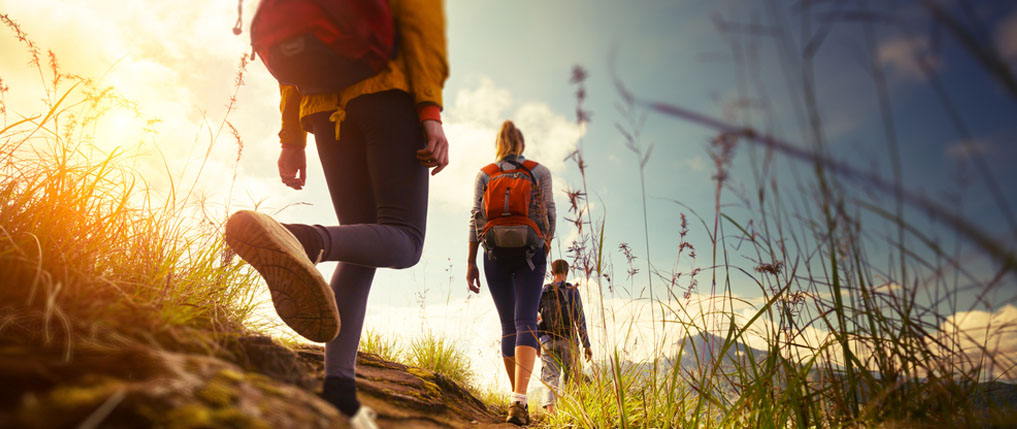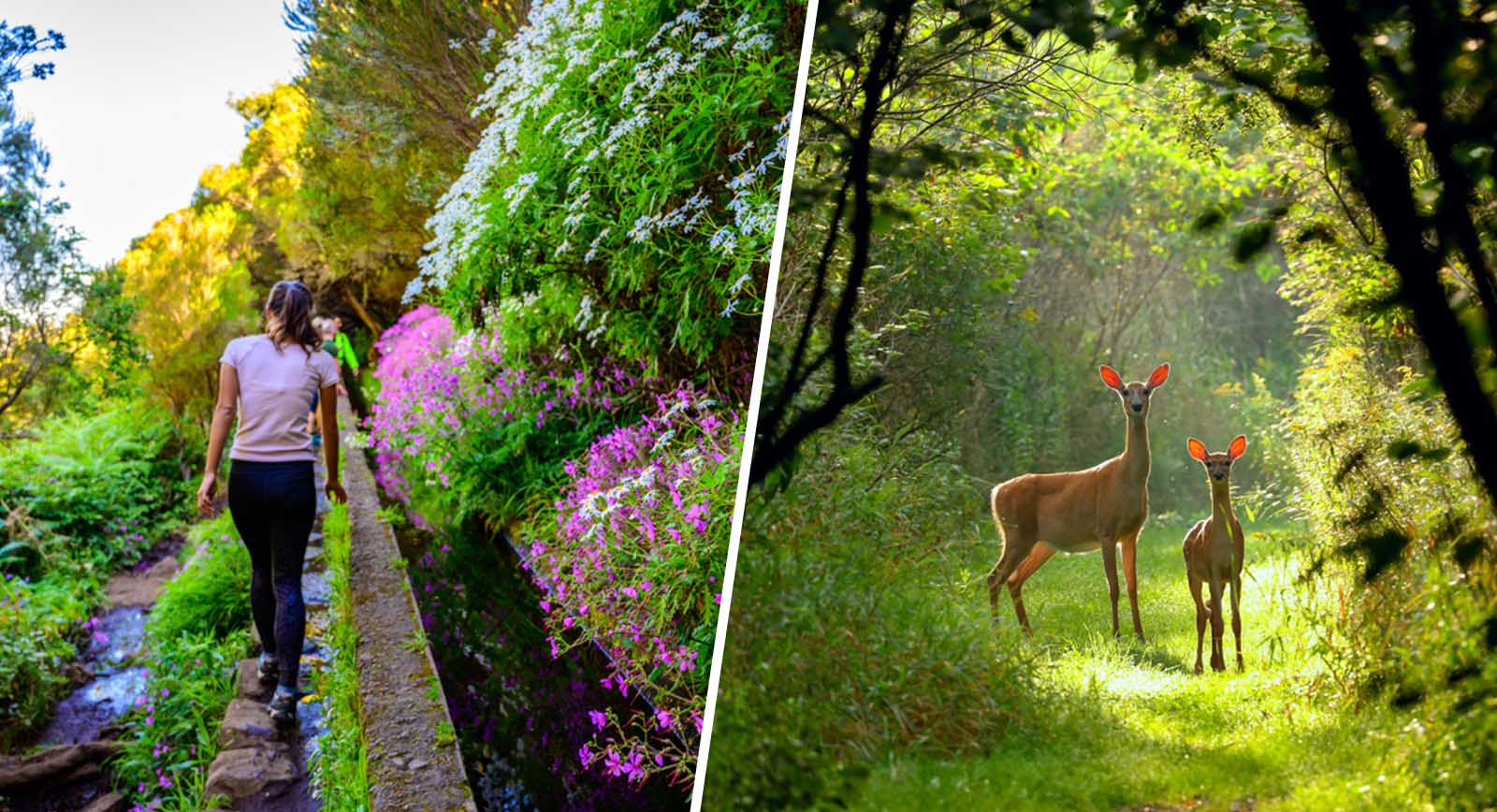How to Start Hiking - The Basics
November 8, 2020

Looking for a hobby that’s rewarding, inspiring and good for you to boot? Hiking is a mighty fine option! Seriously, few recreational activities tick as many boxes as this one. Studies show that hiking has a calming effect and can stimulate better mental focus and feelings of happiness. Of course, combining the benefits of outdoor enjoyment with exercise is pretty powerful, so it’s no surprise that hiking can contribute to a lower risk of heart disease, diabetes, obesity, arthritis and anxiety. Sign us up!
If you’re brand new to the activity, hitting the trail can seem a bit intimidating. But getting started is easier than you might imagine. Read this guide to learn all about how to hike like a pro even if you’ve never set foot in the woods.
Hiking Supplies and Essentials
Let us be the first to say that you don’t need any special tools or gear to become an avid hiker, and that’s part of the beauty of it. With that said, you do want to make sure you have a couple of key items to ensure that every trek is a safe and enjoyable one. Here are the essentials you need upfront.
- Comfortable hiking boots that you’ve already broken in before you hit the trail. Trust us, a stiff pair will only ruin your day and slow you down.
- Weather-appropriate apparel that keeps you warm, dry and protected from the elements. A packable rain coat and an extra pair of socks are clutch.
- A camera backpack for your photography equipment, preferably one with extra space for a few snacks and a bottle of water.
- A bottle of water and plenty of nutritious snacks. Don’t sleep on the sustenance and hydration, especially on long hikes and hot days. If you’re hiking with your pup, make sure to bring extra H2O for him, too.
- Sunscreen and UPF clothing. Don’t underestimate the dangers of sunburn and heat exhaustion. Protect yourself from exposure to UV rays before you head out with sun-protective clothing, sunglasses, a hat and sunscreen.
- A small emergency kit with an LED flashlight and backup batteries, a laminated paper map of the area, a small first-aid kit, stormproof matches, emergency flares, a compass, an emergency blanket and water purification tablets.
Find Out Where to Hike
Now that you’ve got your backpack stocked, it’s time to figure out where to hike. Even if you live in a region rich with natural splendor and ample trail opportunities, you don’t want to go into this blindly. Trails vary widely based on their terrain and difficulty, and hiking something you’re not ready for can put you in an extremely dangerous situation. Use AllTrails, Gaia GPS or another hiking app to discover the best trails in your area and see essential info such as difficulty, length and whether or not a trail is dog-friendly (surprisingly, not all are).

Know a Few Wilderness Basics
Even if you’re just heading out for a quick day hike, mastering a few hiking basics can be a literal life-saver. Here are a few important things to keep in the back of your mind when heading out and about in nature.
- Know how to read a topographic map. Park maps feature topographic elements to help hikers understand and visualize the elevation on a given trail. Knowing how to read one will help you stay at an elevation you’re comfortable with.
- Know how to identify poisonous plants. The occasional brush with poison ivy is inevitable on occasion, but exposure to poisonous plants can be dangerous and even life-threatening, so make sure you know what to avoid.
- Know how to respect wildlife. Wildlife is, well, wild. That means it’s unpredictable and potentially dangerous. Always leave wild animals alone and respect their natural habitats. If you hike with your pup, make sure to keep him on a leash and on the trail at all times to minimize destruction to animal habitats.
- Know the principles of Leave No Trace. Make sure you understand the 7 Principles of Leave No Trace, starting with the most important one: Plan ahead and prepare. These principles will help keep you safe and preserve our natural lands so they remain healthy natural habitats.
Always Respect the Natural Environment
Remember: You’re a guest in the wilderness, and your presence there can be threatening to insects, animals and plants. Hiking is a valuable recreational activity that we want to preserve for future generations, so make sure to explore in a way that has the most minimal impact on the environment. That way, it’ll be happy trails to you and future generations!

SIGN UP FOR EXCLUSIVE OFFERS
Sign up for our newsletter and get exclusive access to new product launches, special offers and much more.
RELATED BLOGS














